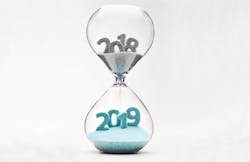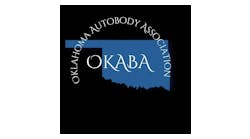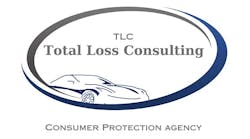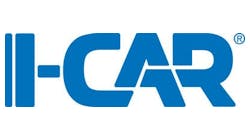Don’t just call it a change, a pivot, a transition—this is a “complete refresh,” says I-CAR.
This year at NACE Automechanika in Atlanta, I-CAR announced it would overhaul its programming in the first quarter of 2019, referencing a variety of enhancements designed to better serve the rapidly evolving needs of the collision repair industry. And those enhancements, John Van Alstyne says, stem from five years of feedback I-CAR received from its industry segment advisory council (ISAC), which is comprised of 83 shops broken up regionally across the U.S. that meet several times each year to discuss potential improvements at I-CAR.
“So we get lots of feedback,” says Van Alstyne, I-CAR CEO and president. “We take copious notes, look for common themes, and then prioritize.”
In addition to receiving feedback from OEMs and insurance companies, I-CAR put together a plan for addressing the top concerns raised by all participating parties. Van Alstyne spoke with FenderBender to break down I-CAR’s plan for 2019.
Less Redundancy Between Classes
When that curriculum for I-CAR’s Professional Development Program was developed several years ago, there were classes for refinish techs, structural techs, non-structural techs. But as I-CAR has discovered from ISAC feedback, not only did that core training need to be updated, but much of that training would end up being repeated across various different courses, as well.
“We never knew which courses people had taken when they came to the course,” Van Alstyne says. “People would have redundancies.”
Thus, I-CAR nixed the redundancies that repeated throughout its different courses, resulting in shortened classes that are more modularly constructed. Now, courses will be more focused and require prerequisites so you “can’t take this class until you’ve taken this one.”
“At the end of day, the curriculum redevelopment is ‘purpose built,’” Van Alstyne says. “Courses are meant to convey skills in the most efficient manner possible.”
Van Alstyne says I-CAR also ran through curriculum workshops with technicians and asked what skills they needed that courses didn't fully cover.
Separating Web and Hands-On Training
I-CAR may have announced a major overhaul for 2019, but the organization has been working on a number of similar changes over the past two years. In late 2017, I-CAR announced it would completely rebuild its courses (which included having classes available in Spanish) and establish more web-based classes.
Those aspirations are part of the 2019 overhaul, but collision repairers can expect a course schedule that segments out skills between online-based and hands-on classes. Beforehand, some skills would overlap between live and web settings. Now, training regimens will be available exclusively in either one or the other.
To give a preview, Van Alstyne says about 75 percent of estimator classes would be available online, with some of the damage assessment classes required in a live setting; about 50 percent of refinish and non-structural classes will be online-only; and 30 percent of structural courses will be web-based.
“That’s part of our purpose-built strategy,” Van Alstyne says. “We don’t want you to do a live class if it’s available to do online.”
I-CAR will also launch Spanish versions of all core courses online (and offline as well).
Simplified Certification Renewal
Initially rolled out in 2016, I-CAR began to trial its new shop assessment program to make it ready for 2019, when the company plans to make it easier for shops to keep their technicians and estimators certified.
If you run a Gold Class shop, Van Alsytne says I-CAR will send an assessor to a shop for an annual renewal process and go through various knowledge areas required for employees. The idea is to require live or web training when someone wants to obtain a new certification, as opposed to when someone wants to retain a certification.
“It’s more like a conversation than a test,” Van Alstyne says, as the assessor will determine if the technician possesses the knowledge to receive an automatic credit. “We’re getting away from defaulting to training when knowledge exists.”
With this new shop assessment system, I-CAR hopes to “advise on knowledge and skills gaps that exist within the shop.”
Even if you have 10 technicians, all of them will get individual sessions in order to retain their certification. Whether they're ProLevel 1, 2 or 3, whether it’s a welding or an estimating certification, techs and estimators will need to prove they understand the skills expected of their level of expertise in order for their certifications to be renewed. If a certification last three years, then that employee will only be assessed every three years.
Easier Access to Training
Last, but certainly not least, one of shop owners’ biggest concerns was eased access to training. Whether that meant navigating the various classes available or paying for multiple certifications, I-CAR knew it needed a more streamlined system.
Van Alstyne says I-CAR has made significant changes to its IT infrastructure that supports the new curriculum being developed for 2019. This system will provide ways to track student training records, which he says will be especially useful for MSOs monitoring training for many employees.
I-CAR will also offer an unlimited training subscription for Gold Class shops that Alstyne says will ease the customer interface. This subscription is designed “to protect shops from turnover, and encourage building bench strength by better training for all technicians.”




